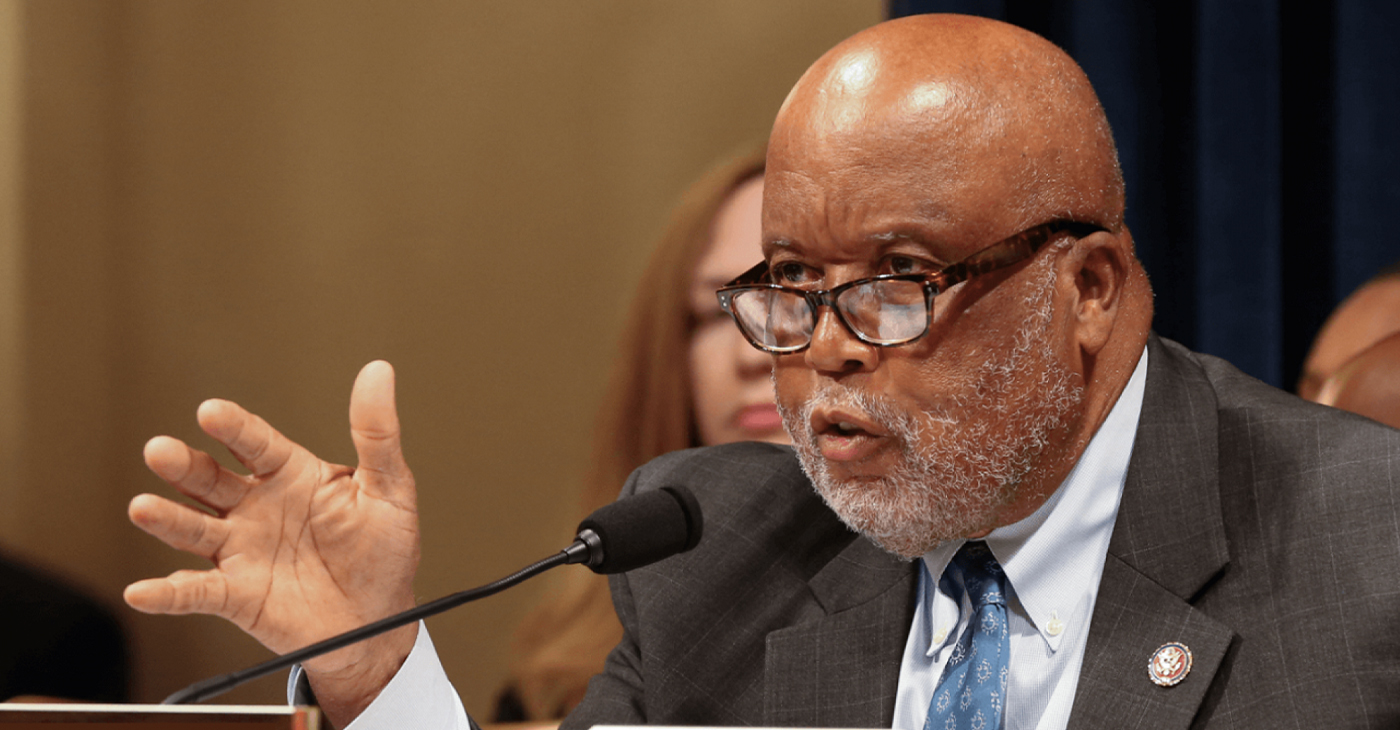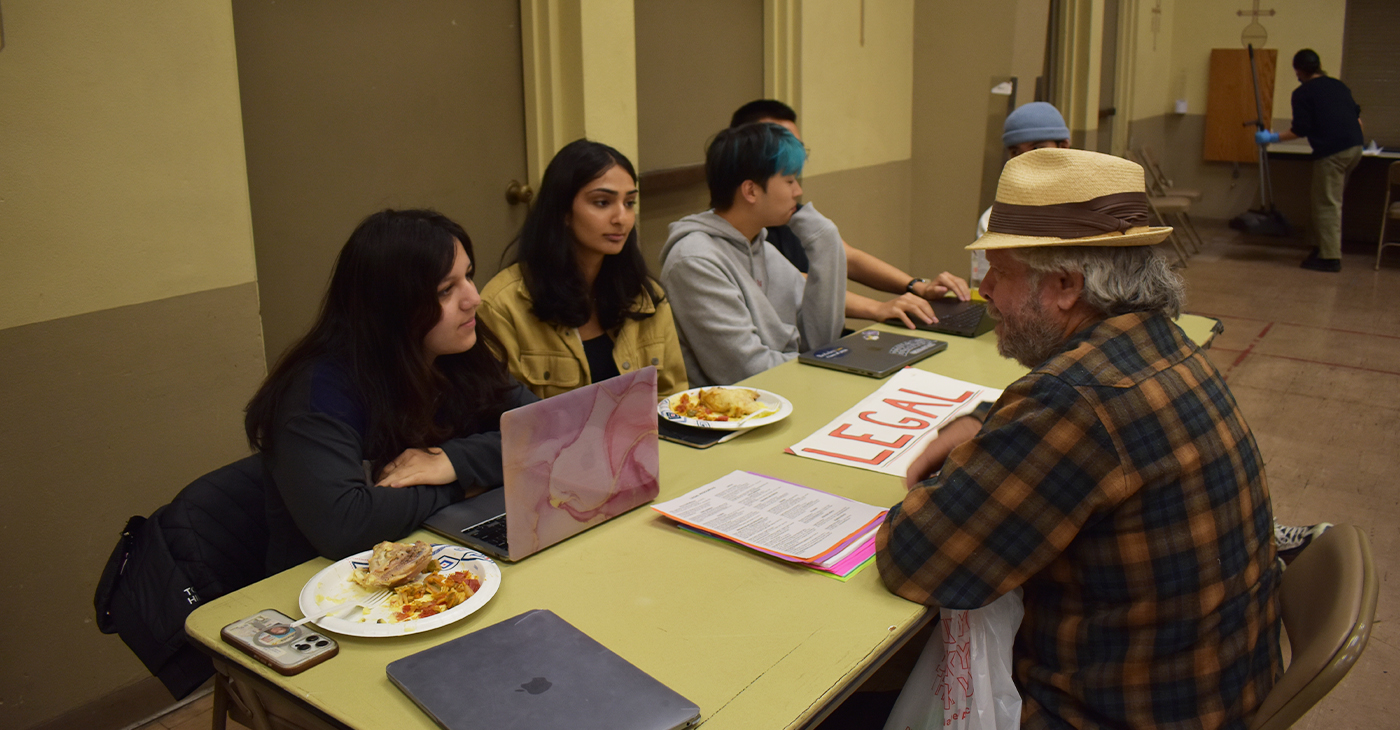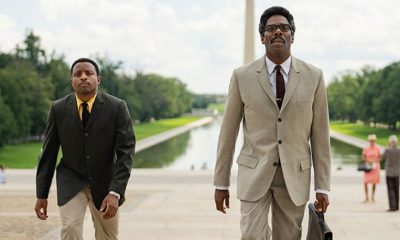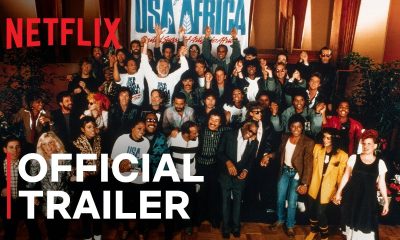Commentary
FILM REVIEW: The Upside
NNPA NEWSWIRE — Kevin Hart fans may think that this role of an underling is beneath their favorite comedy actor. Instead they should view it as an opportunity to see him show more than his class-clown approach to performing. Thrown into the deep-sea depths of a dramedy, Mr. Hart proves he can swim just fine.
By Dwight Brown NNPA News Wire Film Critic

On paper, a story about a low-income black health-care aid who’s befriended by a rich white male quadriplegic sounds suspect. Patronizing films like Driving Miss Daisy come to mind, and potential filmgoers upon hearing the plotline may feel anxious, angry and nauseous all at the same time.
On-screen, The Upside, an American remake of the 2011 Cesar-winning French blockbuster called Les Untouchables, which launched the career Omar Sy (Jurassic World, X-Men: Days of Future Past), is iffy but still quite touching. Three-dimensional compelling performances by Bryan Cranston (that’s to be expected) and Kevin Hart (a welcome surprise) are its saving grace.

Kevin Hart and Bryan Cranston co-star in The Upside
Kevin Hart fans may think that this role of an underling is beneath their favorite comedy actor. Instead they should view it as an opportunity to see him show more than his class-clown approach to performing. Thrown into the deep-sea depths of a dramedy, Mr. Hart proves he can swim just fine.
Dell (Hart), a young man with a criminal past is behind on his child support payments; pity his wife (Aja Naomi King, The Birth of a Nation) and son (Jahi Di’Allo Winston, The New Edition Story). He needs a job and money in a bad way. Dell haphazardly gets a position as a caregiver for a wheelchair-bound millionaire, author Phillip (Cranston), a grief-stricken widower. Queue the violins! How rich is he? Only boxer Floyd Mayweather has more high-end cars in his garage.
Dell’s budding relationship with Mr. Moneybags is heavily scrutinized by a snoopy secretary, Yvonne (Nicole Kidman). Yet, the two men learn a lot from each other (apparently opera music is not so bad, and Aretha’s Franklin’s voice can light up a room) and a friendship forms.
Screenwriter Jon Hartmere takes the real-life experience of Tunisian-born French businessman Philippe Pozzo di Borgo, who became a diabetic quadriplegic in 1993 after a paragliding accident and Americanizes it. The social and racial dynamics in the U.S. are different that those in France (more progressive), so the entire premise feels passé—boarding on offensive—even with a modern New York setting. That said, the nuts and bolts of the screenplay are short on sentimentality and long on the viable bromance.

Bryan Cranston, Nicole Kidman, Kevin Hart star in The Upside
Director Neil Burger (Divergent) knows when to pepper scenes with comic moments and when to season lightly with pathos. Nothing on-screen is awful, but not much stands out: musical score, Rob Simonsen; cinematography, Stuart Dryburgh; editing Naomi Geraghty; and production design Mark Friedberg.
Performances by Cranston and particularly Hart save this film from the trash heap. The former eats drama for breakfast. Crusty, scruffy roles in Trumbo and TV’s Breaking Bad chart the Oscar-nominated actor’s rise into the upper echelon of serious actors. His interpretation of the lost-in-angst Phillip is just another well-conceived portrayal.
Hart, a standup comic who churns out comic movie roles as if he’s in a factory that has to meet a deadline, is a different story. Working his way through the Ride Along franchise, Think Like a Manand The Wedding Ringer didn’t prep him for weighty roles. Yet somehow, he manages to dig deep enough to delve into both sides of Dell: the hustler, the caring friend. Scam artist traits are in Hart’s wheelhouse. The more sensitive moments with Phillip require nuances in emotion that he manages to summon quite nicely. It makes you wonder where his career could go if he took more artistic chances. Is Othello in his future? Not likely. But judging from what’s on view, he’s only scraped the surface of his full potential.
If prospective moviegoers can’t get past the film’s premise, so be it. If they can, they’ll watch a shallow film become a touch deeper because Cranston and Hart create an authentic chemistry.
The syrupy sweet Les Untouchables won France’s highest film honor, a César Award, and so did Omar Sy. It’s unlikely that The Upside will achieve such accolades. But the performances by Cranston and especially Hart certainly rate praise.
Visit NNPA News Wire Film Critic Dwight Brown at DwightBrownInk.com and BlackPressUSA.com.
Activism
‘Donald Trump Is Not a God:’ Rep. Bennie Thompson Blasts Trump’s Call to Jail Him
“Donald Trump is not a god,” U.S. Rep. Bennie Thompson, D-Miss., told The Grio during a recent interview, reacting to Trump’s unsupported claims that the congressman, along with other committee members like vice chair and former Republican Rep. Liz Cheney, destroyed evidence throughout the investigation.

By Post Staff
U.S. Rep. Bennie Thompson, D-Miss., said he not intimidated by President-elect Donald Trump, who, during an interview on “Meet the Press,” called for the congressman to be jailed for his role as chairman of the special congressional committee investigating Trump’s role in the Jan. 6, 2021, mob attack on the U.S. Capitol.
“Donald Trump is not a god,” Thompson told The Grio during a recent interview, reacting to Trump’s unsupported claims that the congressman, along with other committee members like vice chair and former Republican Rep. Liz Cheney, destroyed evidence throughout the investigation.
“He can’t prove it, nor has there been any other proof offered, which tells me that he really doesn’t know what he’s talking about,” said the 76-year-old lawmaker, who maintained that he and the bipartisan Jan. 6 Select Committee – which referred Trump for criminal prosecution – were exercising their constitutional and legislative duties.
“When someone disagrees with you, that doesn’t make it illegal; that doesn’t even make it wrong,” Thompson said, “The greatness of this country is that everyone can have their own opinion about any subject, and so for an incoming president who disagrees with the work of Congress to say ‘because I disagree, I want them jailed,’ is absolutely unbelievable.”
When asked by The Grio if he is concerned about his physical safety amid continued public ridicule from Trump, whose supporters have already proven to be violent, Thompson said, “I think every member of Congress here has to have some degree of concern, because you just never know.”
This story is based on a report from The Grio.
Activism
City of Oakland Celebrates Reopening of Main Library
“Libraries are such critical facilities for all Oaklanders, whether it’s children coming to story-time, adults reading the newspapers or borrowing the latest novels, and people engaging with a range of services and programs that the library hosts,” said Council President and District 2 Councilmember Nikki Fortunato Bas. “Such library services and programs are only possible when the facility’s electricity, heating, roof, and lighting are fixed and running efficiently. I’m proud to join this re-opening of our Main Public Library.”

The branch had been closed since May for critical infrastructure upgrades
Special to the Post
The City of Oakland leadership and community partners gathered to celebrate the reopening of the Main Library after completion of critical infrastructure upgrades to enhance the library’s facilities and provide a better experience for patrons.
Renovations include new roof installation, skylight repair, critical electrical system upgrades, new boiler control system installation, auditorium heating and cooling system installation, and improvements to lighting, flooring and ceilings throughout the building.
“This is truly something to celebrate, the reopening of our wonderful Main Library! I congratulate the staff and our partners for this important project to make the Main Library a more comfortable place for everyone for years to come, said Oakland Mayor Sheng Thao. “Thank you to Oakland voters and the California State Library for making these crucial improvements possible.”
“Libraries are such critical facilities for all Oaklanders, whether it’s children coming to story-time, adults reading the newspapers or borrowing the latest novels, and people engaging with a range of services and programs that the library hosts,” said Council President and District 2 Councilmember Nikki Fortunato Bas. “Such library services and programs are only possible when the facility’s electricity, heating, roof, and lighting are fixed and running efficiently. I’m proud to join this re-opening of our Main Public Library.”
“Public libraries are a wonderful resource for our residents, offering a safe space for learning and being,” said District 3 Councilmember Carroll Fife. “It is critical to improve and modernize our libraries so more members of our community can utilize and enjoy them. I’m excited that the necessary renovations to the Main Library have been completed successfully and thank everyone involved, particularly the City team, who helped secured the necessary grant funds for this work.”
“I am proud of the City staff and project partners who kept this important project on schedule and under budget,” said Assistant City Administrator G. Harold Duffey. “The library is an incredibly important resource for our community members, and this project is an investment into the library’s future.”
“December 2nd was a momentous occasion for Oakland Public Library as we proudly reopened the doors of the Main Library following extensive infrastructure repairs,” said Director of Library Services Jamie Turbak. “Closing the Main Library for six months was no easy decision, as it serves as the central hub for our library system and is truly the heart of Oakland. Yet, this renovation was essential, representing more than just physical upgrades—it reflects our ongoing commitment to creating a safe, welcoming space for everyone.”
The City Administrator Jestin Johnson also attended the press conference and signalled his support for the completion of the record-setting completion of the renovations. Gay Plair Cobb, a newly appointed Library Commissioner said the Library represents the soul and brains of our community.
The Oakland Public Library secured funding for these crititcal repairs through a variety of sources. The California State Library’s Building Forward Library Facilities Improvement Program awarded the Main Branch $4.2 million. To comply with the grant terms, the City of Oakland provided matching funds through Measures KK, as approved by the Oakland City Council in October 2023.
The Main Library will host an Open House to celebrate the reopening on February 22, 2025, 10 a.m. – 5:00 p.m.
About the Oakland Public Library
The Oakland Public Library is a part of the City of Oakland in California and has been in existence since 1878. Locations include 16 neighborhood branches, a Main Library, a Second Start Adult Literacy Program, the Oakland Tool Lending Library, and the African American Museum and Library at Oakland (AAMLO). The Oakland Public Library empowers all people to explore, connect, and grow. Oaklandlibrary.org
Activism
A Student-Run Group Provides Critical Support Services to Underserved Residents
Those visiting The Suitcase Clinic can get legal advice, sign up for food assistance, receive housing resources, get medical help, or enjoy a hot, fresh meal. They can also get haircuts and foot washes from the student volunteers. Nilo Golchini, executive director of the clinic, said one of the goals for most of the students working there is helping bridge the gap of trust that exists between many unhoused people and the healthcare and social welfare systems.

Part One
By Magaly Muñoz
Every Tuesday evening, the dining hall of First Presbyterian Church fills up with dozens of people eating, laughing and moving from table to table, receiving much-needed services from UC Berkeley students – just a few blocks away from the university’s campus.
Individuals seeking support services can be found in this multi-stationed room on the south end of the church talking to law students, student case managers, or receiving medical attention in a corner by healthcare professionals.
This weekly event is hosted by Cal students through a volunteer-run program called The Suitcase Clinic.
The clinic, founded in 1989, was intended to offer free resources to underserved communities in Berkeley and surrounding cities. The majority of the clinic’s clientele are unhoused or low-income people looking for extra support.
Those visiting the clinic can get legal advice, sign up for food assistance, receive housing resources, get medical help, or enjoy a hot, fresh meal. They can also get haircuts and foot washes from the student volunteers.
Nilo Golchini, executive director of the clinic, said one of the goals for most of the students working there is helping bridge the gap of trust that exists between many unhoused people and the healthcare and social welfare systems.
During their tenure in the program, many of the students say they become strong advocates for homelessness rights.

Visitors of the Suitcase Clinic can receive haircuts and foot washing by student volunteers every Tuesday evening. Photo by Magaly Muñoz.
“We’re also standing in solidarity with them. So, it’s not saying, ‘I’m going to help you, but I’m also going to stand with you,’” Golchini said.
Student volunteers get extensive training prior to working directly with clients. Those interested have to take a semester-long class to become versed in areas such as outreach, intersectionality, how to interact with unhoused people, how to sign people up for social services. and more.
Volunteers then get to pick from three different clinics: General, Women’s, or Youth and LGBTQ+.
The General Clinic is the most popular among visiting residents, while Women’s and Youth/LQBTQ+ have more specialized services for attendees.
The Women’s Clinic has many of the similar services to General, but also includes nail painting, childcare, and massages.
The Youth and LGBTQ+ Clinic offers a safe space for young people navigating living on the streets, with services that include housing referrals, wellness and recreation classes and employment resources.
Golchini explained that it’s important for them to keep these clinics separate because the different demographics experience poverty and homelessness differently than those who visit the General Clinic.

Suitcase Clinic student workers posing for a photo with a frequent clinic attendee. The Clinic is open to Berkeley unhoused and low-income residents who need medical or legal service, or a hot meal. Photo by Magaly Muñoz.
“We’re able to provide spaces where people can come in and feel safe and not feel like they’re constantly worried that something’s going to happen to them,” she said.
An outreach team also visits encampments every other Saturday in the Berkeley area to provide hygiene kits and encourage people to visit the in-person clinic, if possible.
However, Golchini said engagement has been low for some time now due to a recent decision by the U.S. Supreme Court that allows cities to ban and cite people for sleeping on the streets.
She said a lot of their clientele got displaced to other cities over time, making it difficult to stay in contact with the services the Clinic was providing for them.
But that hasn’t slowed down the students at the Clinic, if anything, it has pushed them to do more for the community they serve.
-

 Activism4 weeks ago
Activism4 weeks agoOakland Post: Week of November 20 – 26, 2024
-

 California Black Media3 weeks ago
California Black Media3 weeks agoCalifornia to Offer $43.7 Million in Federal Grants to Combat Hate Crimes
-

 Activism4 weeks ago
Activism4 weeks agoAn Inside Look into How San Francisco Analyzes Homeless Encampments
-

 Black History3 weeks ago
Black History3 weeks agoEmeline King: A Trailblazer in the Automotive Industry
-

 California Black Media3 weeks ago
California Black Media3 weeks agoCalifornia Department of Aging Offers Free Resources for Family Caregivers in November
-

 California Black Media3 weeks ago
California Black Media3 weeks agoGov. Newsom Goes to Washington to Advocate for California Priorities
-

 Activism3 weeks ago
Activism3 weeks agoOCCUR Hosts “Faith Forward” Conference in Oakland
-

 #NNPA BlackPress4 weeks ago
#NNPA BlackPress4 weeks agoPRESS ROOM: Clyburn, Pressley, Scanlon, Colleagues Urge Biden to Use Clemency Power to Address Mass Incarceration Before Leaving Office



























































